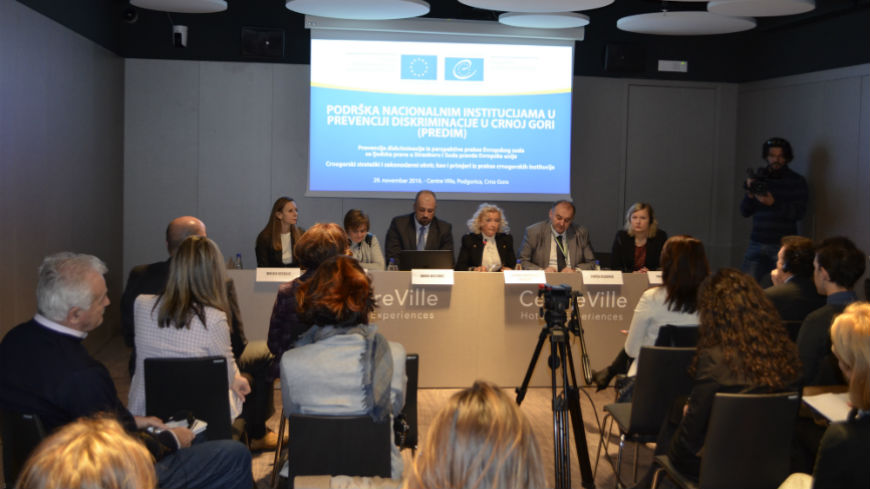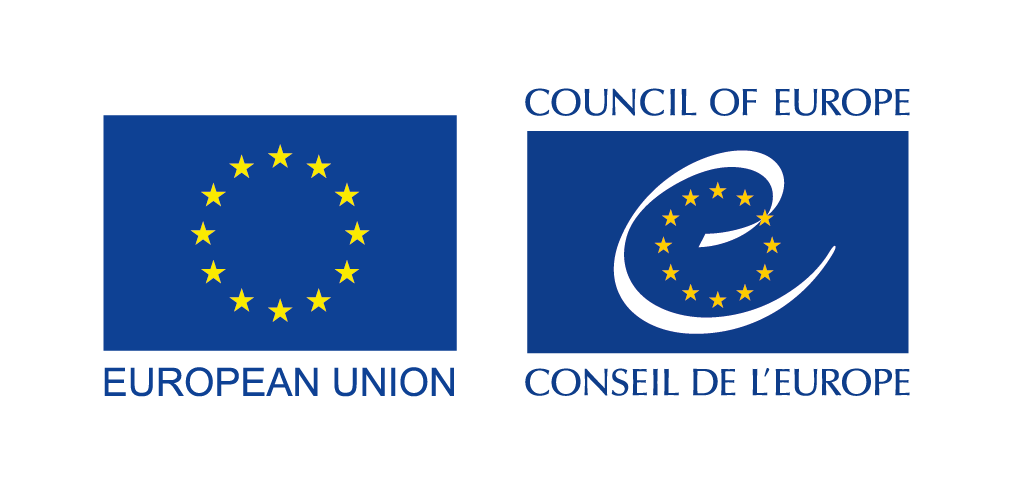A presentation of anti-discrimination booklets was organised on 29 November 2016 in Podgorica, under the framework of Support to the National Institutions in Preventing Discrimination in Montenegro (PREDIM) project.
The booklets compiled the European anti-discrimination standards in the areas employment, gender, sexual orientation, disability and equality of political rights, by focusing on the most relevant aspects of the case-law of the ECtHR and Court of Justice of the European Union. These areas were selected as they present the most concerning grounds for discrimination in Montenegro. Hence, the key PREDIM partners – Ombudsperson’s Office and Ministry for Human and Minority Rights wanted to have elaborated review of respective standards in the view of the case-law of ECtHR and Court of Justice of the EU, so they could improve their work in processing anti-discrimination cases and aligning the national policies and laws with those standards. Furthermore, the booklets, for each of the respective areas, also outlined key national strategic and legal documents as well as most relevant cases and how they interact with those standards.
Booklets provided operational guidelines for civil servants working in broad human rights protection context, but they were intended for public advocacy purposes and promotion of those standards. Hence, the promotion of the booklets was organised in order to officially mark the beginning of public advocacy activities under the PREDIM, as one of the key objectives of the project was to assist national institutions to improve their communication of the human rights topics to the public audience.
Booklets were officially presented on press event on 29 November, with author Dr. Dagmara Rajska, former lawyer at the ECtHR and current HELP Info Point for Poland, reiterating the most important anti-discrimination standards, how they are developed through the case-law of ECtHR and Court of Justice of the EU, and how that case-law evolves throughout the times and affects the national legislation and institutions of member countries.
Beside her, the event gave floor to the representatives of Ministry for Human and Minority Rights – Ms Blanka Radosevic Marovic, Director General for Promotion and Protection of Human Rights, and Freedoms and Ms Biljana Pejovic, Head of Gender Equality Department, who spoke on most important activities of the Ministry in the areas of rights and prevention of discrimination of LGBTI and people with disabilities as well as gender equality. Also, Mr Sinisa Bjekovic, Deputy Ombudsman for Anti-Discrimination and member of ECRI, spoke on the most relevant cases that Ombudsperson’s Office is working on, the increase of their workload, which is the clear indicator of high confidence of citizens in the institutions. He also noted that Council of Europe’s support through previous SOCCER and ongoing PREDIM project resulted with historical maximum of organisational efficiency in resolving citizens’ complaints and cases, which in 2015 totalled to 98.1% of cases initiated during that year.
Anti-discrimination booklets, developed for the purposed of human rights campaign under the PREDIM project are now publicly available. They were designed to provide guidelines for civil servants working on the protection of human rights protection as well as for the citizens interested in keeping track of the key European human rights/anti-discrimination standards.
The booklets compiled the European anti-discrimination standards in the areas employment, gender, sexual orientation, disability and equality of political rights, by focusing on the most relevant aspects of the case-law of the ECtHR and Court of Justice of the European Union. These areas were selected as they present the most concerning grounds for discrimination in Montenegro.
They would also serve as public advocacy material for the key PREDIM partners – Ombudsperson’s Office and Ministry for Human and Minority Rights in 2017
Prohibition of Sexual Orientation Discrimination in Montenegro
Prohibition of gender discrimination in Montenegro
Prohibition of employment discrimination in Montenegro





